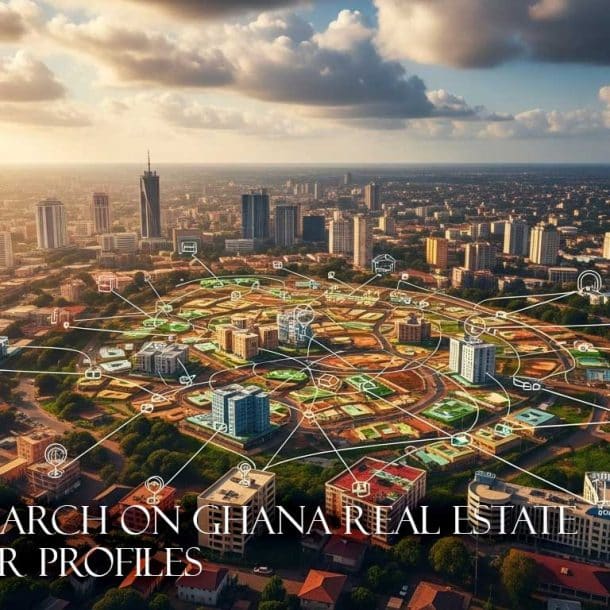
The real estate and construction sector in Ghana is a formidable pillar of the national economy, acting as a significant catalyst for growth, employment, and urban transformation. For investors, homebuyers, and industry stakeholders, understanding the key players shaping this vibrant market is essential. This article provides a foundational analysis of the Ghanaian real estate landscape and offers detailed detailed Ghana real estate developer profiles to guide your decisions.
Read the full research paper with detailed information here.
Also checkout the full infographic about the Ghana Real Estate Developer Profiles here.
The economic weight of Ghana’s construction and real estate sector is substantial. The construction industry, an approximately $8 billion enterprise, consistently contributes over 15% to the nation’s GDP. The real estate sub-sector alone added about 1.6 billion GHS to the GDP in 2023. This robust activity supports an estimated 420,000 direct jobs, with the potential to create over a million more in the coming years.
| Metric | Value / Figure | Year / Period |
|---|---|---|
| Construction Sector Value | Approx. $8 billion | Recent Years |
| Construction Sector Contribution to GDP | >15% | Recent Years |
| Real Estate Sector Contribution to GDP | Approx. 1.6 billion GHS | 2023 |
| Direct Employment in Construction | Approx. 420,000 people | 2023 |
| National Housing Deficit | >2 million units | 2023 |
| Foreign Direct Investment (FDI) Growth in Real Estate | 18% increase | 2024 |
| Urban Population Growth Rate | 3.4% per annum | 2023 |
The market’s dynamism is fueled by powerful long-term drivers, though it also faces notable challenges.
Professional bodies are crucial for market sophistication. The Ghana Real Estate Developers Association (GREDA) sets industry standards, advocates for policy, and provides a “seal of approval” for credible developers. The Ghana Real Estate Professionals Association (GREPA) works to unify and elevate standards for agents, brokers, and property managers. A developer’s affiliation with these bodies is a key indicator of legitimacy.
Ghana’s skyline is being shaped by a diverse group of visionary companies. Below is a comparative look at some of the most influential developers, followed by in-depth profiles.
| Developer Name | Founding Year | Key Leadership | Market Focus | Signature Project(s) | Geographic Focus |
|---|---|---|---|---|---|
| Quao Realty Ltd. | 2017 | Charles Tetteh Quao | Luxury Residential | Manora Residence, The Essence | Prime Accra |
| Devtraco Group | 1993 | Francis Okine Okoh | Master-Planned & Luxury | Devtraco Courts, Arlo Cantonments | Greater Accra |
| Clifton Homes | 2010 | Ann Brewin | High-Specification Residential | The Lennox, The Atlas | Prime Accra |
| Trasacco Estates | (Parent >50 yrs) | Ernest Taricone | Diversified (Ultra-Luxury to Affordable) | Trasacco Valley, Akaya | Greater Accra |
| Gold Key Properties | 1997 | Fuseina Abu | Mixed-Use (Commercial & Residential) | Cantonments City | Prime Accra |
| Lakeside Estate | (Parent >20 yrs) | Dr. Prince Joseph Ayiku | Integrated Lifestyle Communities | Lakeside Hills, Lakeside Marina Park | Greater Accra |
Founded in 2017 by Charles Tetteh Quao, Quao Realty has quickly become a dynamic force in Ghana’s luxury real estate sector. The company’s core mission is built on design innovation and a steadfast commitment to on-time project delivery—a key differentiator in the market. With a portfolio of over 400 units in prime Accra neighborhoods like Airport Residential and Cantonments, Quao Realty focuses on creating internationally competitive luxury apartments and townhouses. Their flagship project, Manora Residence, located minutes from Kotoka International Airport, offers units from studios to 4-bedroom penthouses, complete with world-class amenities like an infinity pool, gym, and co-working spaces, making it a compelling buy-to-let opportunity.
Established in 1993, Devtraco Group is one of Ghana’s most recognized real estate brands. They operate a dual-brand strategy: Devtraco Limited focuses on large-scale, master-planned communities like the 205-acre Devtraco Courts, targeting the middle-income market. In contrast, Devtraco Plus is the group’s luxury arm, specializing in premium apartments and townhouses in prime areas like Cantonments and Roman Ridge, with projects such as Arlo Cantonments and The Address.
Since its founding in 2010, Clifton Homes has built a reputation as a trusted developer of stylish, high-specification homes in central Accra. Led by CEO Ann Brewin, the company is renowned for its unwavering commitment to on-time delivery, having successfully completed eight major developments on schedule. Their integrated model manages the entire project lifecycle, ensuring quality control. Current projects like Varon Rise and The Atlas are selling fast, reflecting strong market confidence.
As the real estate arm of the powerful Trasacco Group, TEDC operates on an immense scale. They are responsible for some of Ghana’s most iconic developments, including the ultra-exclusive Trasacco Valley. Their strategy is expansive, covering the full market spectrum from luxury villas to affordable master-planned communities like the 28-acre Akaya estate and Trasacco Park, which offers apartments starting from $52,000.
Established in 1997, Gold Key is a leading developer of both high-end residential and Grade-A commercial properties. Their most significant impact is the development of Cantonments City, a 10-acre mixed-use “mini-city” that has become a premier business address for multinational corporations. Their residential offerings are split between Goldkey Premium (luxury) and Goldkey Comfort (value-focused).
With over two decades of experience, Lakeside Estate specializes in creating large-scale, integrated lifestyle communities. Their key differentiator is the emphasis on comprehensive community amenities, such as the Lakeside Marina Park, which includes a lake, boat rides, and a golf course. They offer a range of standardized house types within their communities, catering to a broad market from affordable to deluxe homes.
The market is evolving, with two key trends becoming central to new developments, especially in the luxury segment.
The Ghanaian real estate sector presents a landscape of robust growth and dynamic competition. Success requires a nuanced understanding of its players and opportunities.
The most significant strategic opportunity lies in the “missing middle.” The market is currently skewed towards the ultra-luxury and affordable housing extremes, leaving a large, underserved segment of Ghana’s burgeoning middle class. Developers who can innovate to deliver quality, well-located housing at an accessible price point for this demographic will tap into a deep and sustainable domestic demand.
By understanding these market dynamics and the strengths of Ghana’s top real estate companies, stakeholders can make informed decisions to capitalize on the immense potential of this evolving market.
